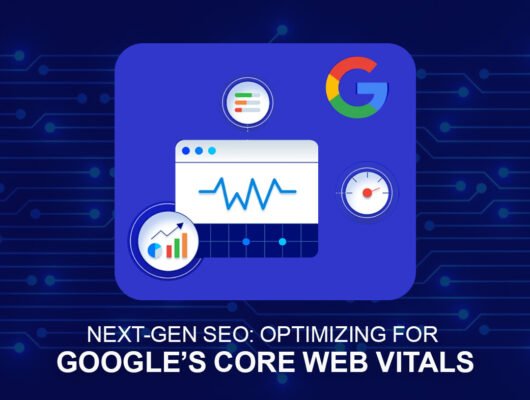Understanding Digital Marketing Trends
As we progress through 2023, digital marketing continues to evolve at a rapid pace, influenced by remarkable trends that are reshaping strategies across various industries. One of the most significant developments is the rise of artificial intelligence (AI) in marketing efforts. Businesses are increasingly utilizing AI-driven tools to analyze consumer behavior, predict trends, and personalize marketing messages. By leveraging data analytics, companies can tailor their content and outreach, ensuring that it resonates effectively with their target audiences.
Another notable trend gaining traction this year is the consideration of voice search. With the proliferation of smart speakers and voice-activated technology, consumers are increasingly opting for voice queries over traditional text searches. This shift necessitates that businesses adapt their SEO strategies to accommodate this change. Implementing conversational keywords and focusing on natural language can enhance visibility in search engine results and improve user engagement.
Personalized marketing strategies are likewise playing a pivotal role in 2023. As customers become more discerning, they expect tailored experiences that reflect their unique preferences and behaviors. Companies are achieving this through data-driven insights, which enable them to segment audiences and deliver customized content, promotions, and recommendations. The effectiveness of personalized marketing is evident in its ability to not only enhance customer satisfaction but also to increase conversion rates significantly.
In summary, the digital marketing landscape in 2023 is heavily influenced by artificial intelligence, the growing prominence of voice search, and the demand for personalized marketing strategies. To remain competitive, businesses must adapt to these trends, leveraging technology and data to meet the evolving expectations of consumers. Understanding and embracing these changes will be crucial for organizations aiming to thrive in the dynamic world of digital marketing.
The Role of Social Media in Digital Marketing
Social media has fundamentally transformed the landscape of digital marketing, emerging as a vital component for brands seeking to engage with their target audiences. Over the years, social media advertising has evolved from basic promotional posts to sophisticated campaigns utilizing advanced targeting options. Businesses can reach specific demographics with remarkable precision, making social media an essential tool for marketers looking to optimize their ad spend and maximize return on investment.
One of the most effective engagement strategies revolves around creating authentic connections with audiences. Brands that actively interact with their followers through comments, likes, and shares tend to foster a sense of community, which can lead to increased loyalty and advocacy. The emphasis on authenticity is particularly pronounced on platforms like TikTok and Instagram, where user-generated content often drives engagement. Users prefer real experiences over polished advertisements, prompting brands to adopt a more relatable and humanized communication style.
Platforms such as Facebook continue to provide diverse opportunities for businesses to connect with their audience. From Facebook Groups that foster niche communities to targeted advertising that ensures messages reach the right people, businesses can tailor their approaches to varying audience segments. Instagram, with its visual focus, supports both product discovery and lifestyle marketing, while TikTok has gained traction for its short-form videos contributing to viral trends.
In conclusion, companies that leverage social media effectively can enhance brand visibility and drive deeper customer engagement. As businesses adapt to the changing digital landscape in 2023, understanding the role of social media will be critical to crafting successful marketing strategies. By utilizing the unique features of each platform and focusing on audience interaction, brands can establish a strong presence that resonates with consumers and encourages ongoing relationships.
Content Marketing Best Practices
In the rapidly evolving digital landscape of 2023, content marketing remains a critical component for brands aiming to engage their audience effectively. The type of content that resonates with consumers has diversified, with formats such as video content, blogs, and infographics gaining traction. These content types not only capture attention but also facilitate better retention of information. Statistics indicate that video content alone is projected to account for over 80% of all web traffic, underscoring its role in contemporary marketing strategies.
Creating shareable and engaging material is essential for enhancing visibility and driving traffic. One of the best practices is to focus on storytelling. Brands that weave compelling narratives into their content can foster emotional connections with their audience, making their messages more impactful. Additionally, incorporating interactive elements such as polls, quizzes, and user-generated content further encourages audience participation and enhances engagement.
Another critical aspect is optimizing content for search engines. To improve SEO rankings, employing relevant keywords and phrases throughout the content is vital. However, it is important to integrate these keywords naturally to avoid the pitfalls of keyword stuffing. Prioritizing high-quality, valuable content that addresses the pain points of your target audience will ensure sustained interest and encourage backlinks, which are essential for enhancing domain authority.
Lastly, measure the performance of your content consistently. Utilizing analytics tools can provide insights into what types of content are generating traction and which formats require optimization. By adapting content strategies based on data-driven insights, brands can stay ahead in the competitive digital ecosystem. Embracing these practices in content marketing will not only enhance engagement but also contribute to building a loyal audience base consistently.
SEO Strategies for 2023
As we move into 2023, digital marketers must adopt effective SEO strategies to stay competitive in an ever-evolving landscape. One critical area to focus on is optimizing for voice search. With the increasing popularity of smart speakers and virtual assistants, tailoring content to answer natural language queries can significantly enhance visibility. Marketers should prioritize long-tail keywords and conversational phrases that reflect how users engage with these technologies.
In addition to voice search, improving mobile usability remains paramount. As mobile devices account for a substantial share of web traffic, Google’s ranking algorithms have become increasingly mobile-centric. Websites must be designed with a responsive layout to ensure that all users have a seamless experience, regardless of their device. Fast loading times and easy navigation will reduce bounce rates and improve user satisfaction, directly impacting search rankings.
Another indispensable strategy is leveraging local SEO. In 2023, businesses that cater to local audiences should optimize their online presence with local keywords, Google My Business profiles, and pertinent local content. Ensuring that business information is accurate and consistent across directories will help in appearing prominently in local search results, effectively reaching nearby consumers.
Furthermore, staying abreast of the latest algorithm updates from major search engines is essential. Understanding changes can aid marketers in adapting their strategies accordingly. Search engines are increasingly prioritizing high-quality content and user experience, which necessitates a commitment to creating informative, engaging material that meets user intent.
These strategies are foundational for any digital marketer looking to enhance their SEO efforts in 2023, ensuring they not only adapt to changes but also capitalize on new opportunities for growth in the digital space.
Email Marketing in a Digital Age
Email marketing remains a cornerstone of digital marketing strategies in 2023, showcasing its resilience despite the fast-paced evolution of new digital channels. As consumers increasingly rely on email for communication, businesses can capitalize on this platform to engage their target audiences effectively. The key to successful email marketing lies in building a robust email list, nurturing relationships, and crafting content that resonates with subscribers.
To build an effective email list, businesses should focus on attracting subscribers through various means such as quality content, exclusive offers, and engaging lead magnets. Encouraging website visitors to sign up for newsletters or promotions can be fruitful in expanding the list. Moreover, ensuring that the sign-up process is seamless increases the likelihood of conversions. It is also vital to maintain a clean email list by regularly removing inactive subscribers, thereby enhancing the overall engagement rate.
Creating compelling newsletters is paramount for keeping subscribers interested. Successful email campaigns utilize attention-grabbing subject lines, well-structured content, and visually appealing designs. By segmenting the email list based on subscriber preferences or behaviors, businesses can tailor their messages to match specific interests. This targeted approach aids in maintaining relevance and boosting open and click-through rates.
Personalization is another critical element of effective email marketing. Utilizing data analytics enables businesses to deliver tailored content that speaks directly to individual recipient preferences. By analyzing past interactions, brands can customize recommendations, adjust timing, and offer personalized promotions. However, marketers must tread carefully to avoid crossing into the territory of spam, which can cause long-term damage to brand reputation. By adhering to best practices and honoring subscriber preferences, businesses can create a meaningful relationship through email, ensuring ongoing engagement and higher conversion rates.
Influencer Marketing Strategies
As we navigate through 2023, the relevance of influencer marketing continues to grow, driven by shifts in consumer behavior and technological advancements. Brands are increasingly harnessing the power of social media influencers to reach their target audiences more effectively. To successfully implement an influencer marketing strategy, it is crucial to identify the right influencers whose values align with the brand and who have a genuine connection with the audience. This involves evaluating the influencer’s reach, engagement, and authenticity, ensuring that the partnership resonates with potential customers.
Effective collaboration is another cornerstone of successful influencer marketing. Brands should prioritize building relationships with influencers rather than merely transactional collaborations. This approach fosters authenticity, allowing influencers to create genuine content that reflects both their style and the brand’s message. Setting clear expectations and engaging influencers in the creative process can enhance this collaboration. Providing influencers with creative freedom often leads to more authentic endorsements, further amplifying the brand’s message.
Measuring the return on investment (ROI) from influencer partnerships remains a significant challenge. To evaluate the effectiveness of influencer marketing campaigns, brands must establish key performance indicators (KPIs) tailored to their specific goals. Metrics such as engagement rates, conversion rates, and reach can provide valuable insights into the campaign’s success. Additionally, utilizing tracking tools and analytics platforms can help in understanding audience interaction and campaign impact more comprehensively. For instance, a case study showcasing a successful fashion brand demonstrated a substantial increase in online sales and brand awareness following a targeted influencer campaign.
In conclusion, embracing influencer marketing strategies in 2023 entails a thoughtful approach to selecting the right partners, fostering collaborative creativity, and systematically measuring the results. By adhering to these principles, brands can optimize their influencer marketing initiatives to achieve tangible outcomes and enhance their overall marketing efficacy.
Data Analytics and Digital Marketing
In the rapidly evolving landscape of digital marketing, the integration of data analytics has become indispensable for shaping effective marketing strategies. Data analytics involves the systematic collection, measurement, and interpretation of various metrics related to consumer behavior, campaign performance, and market trends. Numerous tools are available to marketers today, including Google Analytics, HubSpot, and Tableau, which facilitate the collection and visualization of data to extract meaningful insights. These tools enable businesses to track user engagement, conversion rates, and even customer sentiment across multiple digital platforms.
The importance of methodologies in data analytics cannot be overstated. Effective analysis often relies on a combination of qualitative and quantitative methods to create a well-rounded perspective. Techniques such as A/B testing, cohort analysis, and predictive modeling allow marketers to not only understand past performance but also forecast future behavior. By employing these methods, businesses can tailor their marketing efforts to specific audience segments, enhancing personalization and engagement. The interpretation of this data is critical; it allows marketers to ascertain what strategies are working and which ones require adjustment, ensuring that resources are allocated efficiently.
Furthermore, the insights gained from data analysis can significantly influence decision-making. For instance, analyzing customer feedback through sentiment analysis can guide content creation and product development. Similarly, understanding website traffic patterns can help in optimizing landing pages and enhancing user experience. Ultimately, leveraging data analytics enables digital marketers to make informed decisions that drive campaign optimization, boost ROI, and achieve overarching business goals. As we move further into 2023, the role of data analytics in digital marketing will only grow, underscoring its critical importance as a tool for success in this competitive environment.
The Impact of Mobile Marketing
In recent years, mobile marketing has emerged as a critical component of digital marketing strategies as consumer behavior trends increasingly favor mobile devices for shopping and browsing. With smartphone usage on the rise, businesses must acknowledge the role mobile marketing plays in reaching potential customers effectively.
One of the key strategies for mobile marketing involves adopting mobile-friendly approaches. This includes the implementation of responsive design, which ensures that websites are easily navigable on various screen sizes without compromising user experience. As a result, businesses can facilitate smoother interactions that cater specifically to mobile users. Failure to optimize for mobile can lead to high bounce rates, as users often expect fast-loading, easily accessible information on their devices.
Moreover, the use of mobile applications has become a vital aspect of engaging consumers. Applications often provide a tailored experience, allowing businesses to send notifications, offer promotions, and facilitate seamless transactions. Integrating features such as mobile payment options can enhance customer satisfaction and drive sales. Furthermore, leveraging app-based marketing can prove to be a cost-effective way to capture consumer attention amidst the overwhelming digital noise of social media and websites.
As more consumers increasingly interact with brands through mobile platforms, businesses should also prioritize investment in analytics tools specifically designed for mobile marketing. These tools help track user behavior, preferences, and engagement metrics, allowing marketers to refine strategies effectively. Overall, the shifting consumer landscape underscores the necessity for brands to adapt their marketing strategies to embrace mobile devices. By focusing on mobile optimization, responsive design, and applications, companies can enhance their competitiveness and better serve their customers in a mobile-centric world.
Future Predictions for Digital Marketing
As we advance into an increasingly digital-centric world, businesses must be attuned to the ongoing evolution of digital marketing strategies. Beyond 2023, it is anticipated that advancements in artificial intelligence (AI) and machine learning will profoundly shape the landscape of digital marketing. These technologies will not only enhance data analysis capabilities but also enable more personalized customer interactions, thereby improving user experience significantly. In addition, businesses that leverage AI to tailor marketing strategies based on consumer behavior will likely see a marked competitive advantage.
Moreover, the rise of voice search and smart devices will necessitate a reevaluation of search engine optimization (SEO) strategies. As consumers turn more to conversational queries, optimizing content for voice search could become crucial for businesses aiming to increase visibility. This shift may also lead to the greater importance of local SEO since many voice searches are location-based.
Another anticipated change is in consumer expectations regarding privacy and data security. In light of increasing public awareness and regulatory scrutiny surrounding data protection, businesses must prioritize transparency and gain consumer trust. Brands that clearly communicate their data handling practices will likely foster deeper relationships with their target audiences, while those neglecting to do so may face backlash.
Additionally, the growing emphasis on sustainability and corporate responsibility may reshape marketing tactics. Consumers are becoming more discerning, favoring brands that prioritize ethical practices. Companies must integrate these values into their marketing communications to meet evolving consumer expectations. In summary, as we look towards the future of digital marketing, businesses should prepare for a landscape characterized by tech-driven personalization, heightened consumer accountability, and a commitment to sustainable practices. Adapting to these trends will be instrumental for sustained competitiveness.







